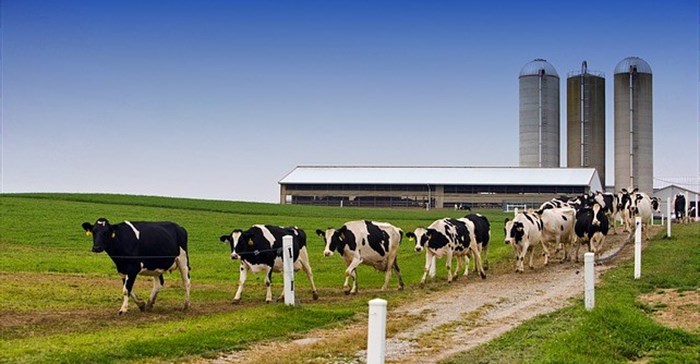
Top stories






More news
















Each farmer has a shareholding in Dairy Day in direct relation to the number of litres he or she can supply. Dairy Day holds 85% of the shares of an operating entity running two acquired dairies, Honeydew and Stonelees, and a newly built, in excess of R100 million, 22,000 m2 processing plant in Howick, which packages private labels on behalf of retailers and brands and produces its own products under the Honeydew brand.
The operating entity, known as Dairy Day (Pty) Ltd is capable of processing 600,000 litres of fresh milk daily, includes cold rooms and production lines, operates in excess of 100 vehicles, and employs 1,200 people. It produces sterilised milk, maas, yoghurt, cream, juices, dairy blends, butter, and powdered milk.
The remaining 15% of the shares in Dairy Day are held by the Dairy Day Workers Trust in which the producers’ employees participate. “Unlike other farmer-owned or cooperative organisations, we are focused on providing a service rather than simply a product to our customers, who are the major retailers,” says Paul Marshall, CEO of Dairy Day. “We achieve this by underwriting our supply to the retailer.”
“We know exactly what our own milk producers can deliver and, therefore, what the processing plant’s output will be. Because our suppliers have the benefit of revenue from the plant, we are less vulnerable to farmers choosing to supply a different processor in the quest for short-term price advantages.”
“So, we can do integrated and very accurate planning from the farm gate, through the processing plant, to the customer. This gives our customers a sense of security and builds their loyalty to us.”
“By the same token, it gives our suppliers a sense of security. They’re not going to be abandoned during times of oversupply when processors can pick and choose their suppliers purely on price. It truly is a business model in which everyone wins.” Ensuring stability of supply to retailers will create demand that should drive steady growth for the farmer shareholders.
“Ideally, we would like growth of supply to come from within our existing and future shareholder base,” Marshall says. “In fact, a large part of what we’re doing is geared towards enabling such growth.”
“Dairy Day has been established to stabilise dairy farm profitability. This should assist in making dairy farming an attractive career and, thereby, draw new entrants.”
“If we do get into the fortunate position of having more demand than our existing suppliers can fill, then bringing in more shareholding farmers will simply help us create a bigger pie, of which everyone’s cut will be proportionately bigger.”
Bertie Hamman, senior manager: Secondary Agriculture for Standard Bank, Dairy Day’s primary banker, believes that the Dairy Day business model addresses a number of issues in the dairy sub-sector and in agriculture in general. “We have believed for many years that the dairy industry is too fragmented. Producers have an organisation, as do processors. But none of the linkages in the value chain, including logistics providers and retailers, have been closely integrated.”
“From a broader agricultural industry perspective, it is our conviction that farmers do need to get involved up and downstream of their farm gate in order to diversify their income and spread their risk.”
“So, we were delighted to give our support to Dairy Day. We believe its focus on using superior service to retailers and consumers as the basis for creating growth for its suppliers will deliver value at all levels of society.”
Marshall says that Standard Bank’s belief that Dairy Day’s business model is sustainable has given the company and its shareholders a great deal of confidence. “Most other “cooperative” style companies in agriculture have low capital input and much higher funding than we have needed because we obtained 100% of our capital from our shareholders, upfront.”
“So, we were an attractive option for any bank. However, Standard Bank has a strong agricultural division and deep insight into the industry. They understand that what we’re doing is good for the farmer, retailer and consumer and that makes for good business. By supporting us, they’re saying our vision is right. And, they’re supporting the evolution of the dairy industry in South Africa.”